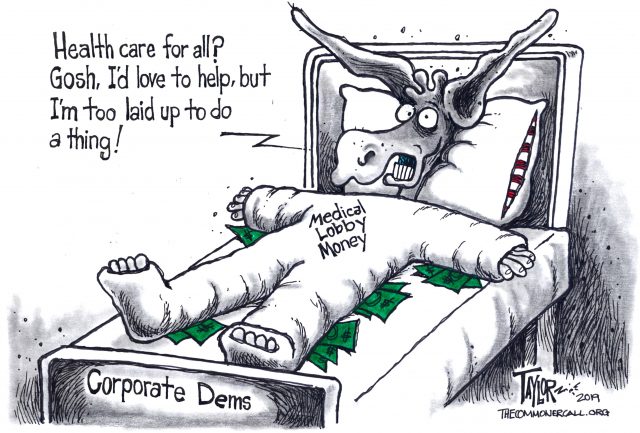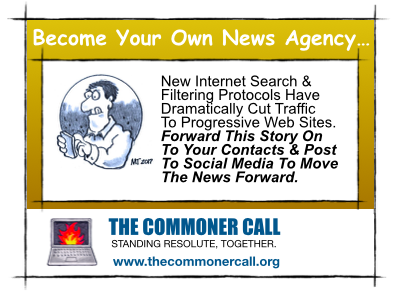When it comes to bills that address the issue of rising drug prices, Dem Rep. Eshoo has not been a supporter.
By Donald Shaw
Sludge (1/25/19)
The Democratic rep who will lead the Energy and Commerce Subcommittee on Health in the new session of Congress has taken more money from the pharmaceuticals and health products industry over her career than any other member of the House.
Rep. Anna Eshoo of California’s 18th Congressional District will chair the subcommittee after accepting more than $1.6 million in campaign contributions from PACs and individuals affiliated with pharmaceutical and health products companies over the course of her career, according to data compiled by the Center for Responsive Politics. In the 2018 election cycle, Eshoo received $153,450 from the industry, including contributions from the PACs of AbbVie, BioMarin pharmaceuticals, Bristol-Myers Squibb, Pfizer, Merck, and many other drug companies.
The Energy and Commerce Health Subcommittee has jurisdiction over the regulation of the drug industry, among other things. While many Democrats, and even some Republicans, including President Trump, have been advocating action to address the rapid increase in the prices of some drugs, Eshoo has taken a softer tone.
“I’m going to be fair. I’m not out to punish or to do things out of vengeance,” she said when asked by reporters recently if she would be tough on drug companies in her role at the helm of the health subcommittee.
Eshoo has a record of working to advance legislation that benefits the pharmaceuticals industry. In 2009, she introduced legislation, along with Texas Republican Joe Barton, to give pharmaceutical companies 12-year exclusivity periods for biologic drugs, beyond the length of their patents, to protect them from competition by the generic drug industry. Biologics are a class of drugs that target the genetic source of diseases such as multiple sclerosis, rheumatoid arthritis, and Crohn’s disease. Standard chemical drugs get exclusivity periods of five years.
The Eshoo-Barton bill, which was supported by the Biotechnology Industry Organization, a trade group that lobbies the government on behalf of hundreds of biotechnology and pharmaceuticals companies, was passed into law as part of the Affordable Care Act, despite opposition from President Obama and many of her Democratic colleagues.
Following the enactment of the Eshoo-Barton bill, the Biotechnology Industry Organization named Eshoo “legislator of the year” in 2010. The organization had previously given Eshoo the honor in 2002.
Eshoo has also sponsored pharmaceuticals industry-backed legislation to protect a program under which drug companies pay fees to the Food and Drug Administration (FDA) to help speed up the drug approval process. This program has been criticized as a source of regulatory capture by watchdog groups like the Project on Government Oversight. “This arrangement gives the pharmaceutical industry extraordinary influence over its government overseer,” POGO wrote in a 2016 report. “It leaves the regulator beholden to the regulated.” …
*****
Corporate Dem ‘Medicare for All’ Critic Richard Neal Can Choke Off Progressive Health Care Bills From His New Committee Perch

By
Sludge (12/5/18)
When Richard Neal arrives in Washington next January for the 116th Congress, he’ll be the chairman of the powerful House Way and Means Committee.
“I will be unyielding in my defense of Social Security, Medicare and Medicaid,” Neal said on Nov. 7, one day after an election that swept 41 new Democrats into the House.
But the congressman’s moves over the last month indicate that protecting those revered social services will come at a price—not moving forward with social programs that could make single-payer health care a reality in the near future.
In August, Neal said he didn’t think universal health care is a “realistic” goal for the incoming Congress and instead endorsed incremental change of the health care system. In comments to the editorial board of the Hampshire Gazette, Neal said that people calling for a single-payer system would never be satisfied and needed to calm down. Protecting the Affordable Care Act, the congressman said, should be the priority—universal health care can wait.
“I think that there is an approach that is a little more incremental in nature,” said Neal.
Neal also received $2.4 million from the insurance industry, which includes health insurers amongst other types of insurance companies, more than any other member of the incoming 116th Congress.
As head of the House Ways and Means Committee, Neal will have near total control over what tax-related policies come to the House floor, including legislation that would create a Medicare for All health care system. Having Neal at the helm of the committee, rather than a more progressive member, makes it much less likely that the House of Representatives will vote on universal health care measures.
The Ways and Means Committee writes tax laws and controls how the government raises revenue through a number of schemes, including tariffs. By setting revenue levels and sources, the committee has a major impact on spending for the federal government, making Ways and Means one of the most powerful committees in Congress.
Corporate booty
Over his two-decade career in the House, Neal has relied on support from the health care industry, receiving $950,000 from health professionals and associations and $750,000 from the pharmaceutical industry, according to data compiled by the Center for Responsive Politics. Neal also received $2.4 million from the insurance industry, which includes health insurers amongst other types of insurance companies, more than any other member of the incoming 116th Congress.
In the 2017-18 election cycle, insurance and pharmaceutical PACs alone combined to deliver a mammoth $546,000 to the congressman, who faced a primary challenge from progressive lawyer Tahirah Wadud. Neal won by a margin of 40 percentage points and ran unopposed in the general election.
Neal raised nearly $1.5 million more in the 2017-18 election cycle than the average Democratic House member. PACs made up just over 75 percent of the total $3,130,248 Neal pulled in during the 2017-18 cycle, with almost a third of that money coming from PACs and individuals in the health care industry.
The revolving door is spinning, too: Neal’s former Chief of Staff Ann Jablon is today a lobbyist with Capitol Counsel, a firm with ties to health care industry titans and major military contractors. Jablon lobbies Congress for health interests including Blue Cross Blue Shield licensee Health Care Services Corporation, pharmaceutical company Merck, and the American Health Care Association.
- It’s Really Quite Simple: Two Questions To Quickly Sift The Growing Gaggle Of Dem Presidential Candidates –– The large and growing field of Democratic candidates for President offer a wide range of personal histories, beliefs, and issues to run on. This is good for the country. There seems to me to be a very simple way to narrow the field quickly. My two simple, straightforward questions to each and every one … Read the Rest
*****
Here’s A Simple Question To Ask Your Congress Critter:
Why don’t ALL citizens have health care at least as good as that enjoyed by you members of congress and your families on our tax money?
Really, next time you get a chance — be it a democrat or republican — ask them that question and let us know what they tell you.
(Commoner Call cartoons and photo by Mark L. Taylor, 2018/2019. Open source and free for non-derivative use with link to www.thecommonercall.org )




